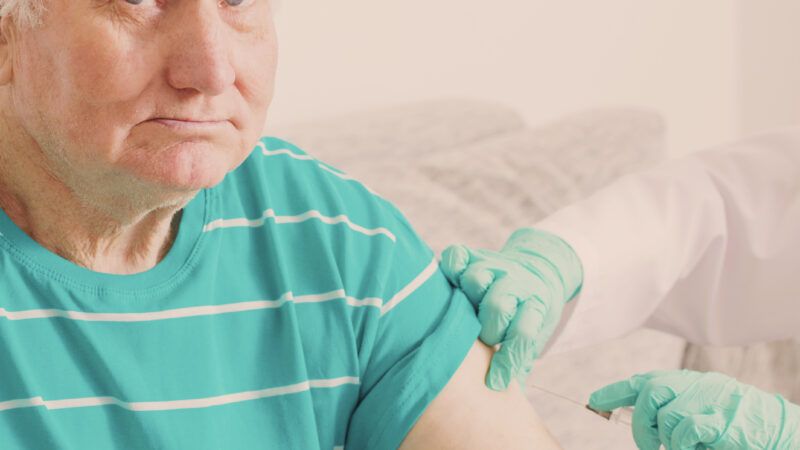The COVID-19 Vaccine Did Not Kill Your Grandmother
Some scientists offer an important reminder about cause and effect.

The Centers for Disease Control and Prevention's (CDC) Advisory Committee on Immunization Practices (ACIP) voted last week to recommend that the first doses of a coronavirus vaccine be given to an estimated 21 million health-care workers and 3 million residents and staff of nursing homes and other long-term-care facilities. Protecting health care workers makes sense since we want to make sure that our hospitals and physicians' offices remain adequately staffed as the winter surge of COVID-19 infections and hospitalizations rises.
In addition, the CDC ACIP panel voted to prioritize the vaccination of long-term care residents because their risk of serious medical complications and death from the coronavirus infections is vastly higher than it is for younger Americans. However, one panel member, Vanderbilt University infectious disease researcher Helen Keipp Talbot, dissented from that decision. Why?
At an earlier ACIP meeting, Talbot warned, "There is such a high mortality rate in long-term-care facilities. There will be a number of patients who receive immunizations for Covid and will pass away. And it will be regardless of the vaccine." As a result of nursing home deaths that just happen to occur shortly after a resident has been vaccinated, Talbot fears, "we're going to have a very striking backlash of 'my grandmother got the vaccine and she passed away,' and they're not likely to be related, but that will become remembered and break some of the confidence in the vaccine."
Talbot pointed out that no randomized controlled trials have been conducted among nursing home residents. However, when she was asked by the biomedical newsletter STAT if she had higher safety concerns about the vaccines for that population she responded, "Any more than anyone else? No. But I think what we have for the adult population in general is a randomized control trial to look at the safety data."
In fact, the just-released Food and Drug Administration staff analysis of the Pfizer/BioNTech vaccine that is likely to be issued an Emergency Use Authorization soon finds that it is essentially equally effective at preventing COVID-19 infections for all age groups, including age cohorts 65 to 74 years and 75 years and over.
Still, Talbot is right to warn against the likely spate of anguished news stories, Facebook posts, and tweets recklessly asserting the adventitious deaths of older relatives were triggered by the COVID-19 vaccines they had just received. Basically, Talbot is cautioning people not to commit the post hoc ergo propter hoc fallacy, which means, after this, therefore because of this. In other words, the fallacy goes, Granny died after she got vaccinated, therefore the vaccine killed her.
"I fear a loss of confidence in the vaccine," Talbot told STAT. "That the vaccine will actually truly be safe, but there will be temporally associated events and people will be scared to use the vaccine. And we won't be able to get our kids back in school and people back at work—the things that are important."
Here's a message that everybody needs to hear: Don't let fallacious reasoning prevent you from being vaccinated in the coming weeks and months to protect your family, your neighbors, and yourself from the COVID-19 virus.


Show Comments (177)